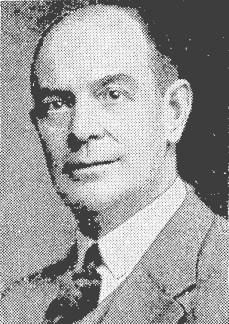
The prime minister of Australia is the head of government of the Commonwealth of Australia. The prime minister chairs the Cabinet and thus heads the federal executive government. Under the principles of responsible government, the prime minister is both a member and responsible to Parliament. The current prime minister is Anthony Albanese of the Australian Labor Party, who assumed the office on 23 May 2022.

The House of Representatives is the lower house of the bicameral Parliament of Australia, the upper house being the Senate. Its composition and powers are set down in Chapter I of the Constitution of Australia.
A question time in a parliament occurs when members of the parliament ask questions of government ministers, which they are obliged to answer. It usually occurs daily while parliament is sitting, though it can be cancelled in exceptional circumstances. Question time originated in the Westminster system of the United Kingdom, and occurs in other countries, mostly Commonwealth countries, who use the system.

The Senate is the upper house of the bicameral Parliament of Australia, the lower house being the House of Representatives. The composition and powers of the Senate are established in Chapter I of the Constitution of Australia. There are a total of 76 senators: 12 are elected from each of the six Australian states regardless of population and 2 from each of the two self-governing internal Australian territories. Senators are popularly elected under the single transferable vote system of proportional representation.

The Parliament of Australia is the legislative body of the federal level of government of Australia. It consists of three elements: the monarch, the Senate and the House of Representatives. It combines elements from the UK Parliament and the US Congress.

The speaker of the House of Representatives is the presiding officer of the Australian House of Representatives, the lower chamber within the Parliament of Australia. The counterpart in the upper house is the president of the Senate. The office of the speakership was established in 1901 by section 35 of the Constitution of Australia. The primary responsibilities of the office is to oversee house debates, determine which members may speak, maintain order and the parliamentary and ministerial codes of conduct during sessions and uphold all rules and standing orders. The current speaker of the House of Representatives is Milton Dick, who was elected on 26 July 2022.

Parliament House, also referred to as Capital Hill or simply Parliament, is the meeting place of the Parliament of Australia, the legislative body of Australia's federal level of government. Located in Canberra, the Parliament building is situated on the southern apex of the Parliamentary Triangle atop Capital Hill, at the meeting point of Commonwealth, Adelaide, Canberra and Kings Avenue enclosed by the State Circle.

The president of the Senate is the presiding officer of the Australian Senate, the upper house of the Parliament of Australia. The counterpart in the lower house is the speaker of the House of Representatives. The office of the presidency of the senate was established in 1901 by section 17 of the Constitution of Australia. The primary responsibilities of the office is to oversee senate debates, determine which senators may speak, maintain order and the parliamentary code of conduct during sessions and uphold all rules and orders of the senate. The current president is Sue Lines, who was elected on 26 July 2022.

The House of Representatives is the sole chamber of the New Zealand Parliament. The House passes laws, provides ministers to form Cabinet, and supervises the work of government. It is also responsible for adopting the state's budgets and approving the state's accounts.

In New Zealand, the speaker of the House of Representatives, commonly known as the speaker of the House, is the presiding officer and highest authority of the New Zealand House of Representatives. The individual who holds the position is elected by members of the House from among their number in the first session after each general election. They hold one of the highest-ranking offices in New Zealand. The current Speaker is Gerry Brownlee, who was elected on 5 December 2023.

The Victorian Legislative Assembly is the lower house of the bicameral Parliament of Victoria in Australia; the upper house being the Victorian Legislative Council. Both houses sit at Parliament House in Spring Street, Melbourne.

Old Parliament House, formerly known as the Provisional Parliament House, was the seat of the Parliament of Australia from 1927 to 1988. The building began operation on 9 May 1927 after Parliament's relocation from Melbourne to the new capital, Canberra. In 1988, the Commonwealth Parliament transferred to the new Parliament House on Capital Hill. It also serves as a venue for temporary exhibitions, lectures and concerts. Old Parliament House is, looking across Lake Burley Griffin, situated in front of Parliament House and in line with the Australian War Memorial.
A committee of the whole is a meeting of a legislative or deliberative assembly using procedural rules that are based on those of a committee, except that in this case the committee includes all members of the assembly. As with other (standing) committees, the activities of a committee of the whole are limited to considering and making recommendations on matters that the assembly has referred to it; it cannot take up other matters or vote directly on the assembly's business. The purpose of a committee of the whole is to relax the usual limits on debate, allowing a more open exchange of views without the urgency of a final vote. Debates in a committee of the whole may be recorded but are often excluded from the assembly's minutes. After debating, the committee submits its conclusions to the assembly and business continues according to the normal rules.
The committees of the Australian Senate are committees of Senators, established by the Australian Senate, for purposes determined by that body. Senate committees are part of the operation of the Australian parliament, and have for some decades been involved in maintenance of government accountability to the Australian parliament, particularly through hearings to scrutinise the budget, and through public inquiries on policy questions.
The Clerk of the Australian Senate is the head of the Parliamentary Department of the Senate, which is the parliamentary department supporting the work of the Australian Senate. The Clerk is responsible to the President of the Senate who in turn is responsible for the department to the Senate. The Department of the Senate is not part of the Executive Government of Australia. The current Clerk is Richard Pye. The Deputy Clerk of the Senate is Jackie Morris. Since 1999, the terms of the Clerk of the Senate, as that of the Clerk of the House of Representatives, have been limited to 10 years. The change did not apply to the incumbents.
Michael Eamon Beahan was a British-born Australian politician who served as the 19th President of the Australian Senate, holding that position from 1 February 1994 to 30 June 1996. He was a Senator representing Western Australia in the Australian Senate from 1987 to 1996.

Harry Evans was the longest-serving Clerk of the Australian Senate, serving from 17 February 1988 to 4 December 2009. He was considered an "ardent and outspoken defender" of the independence and constitutional authority of the Senate.
The Office of the Clerk of the House of Representatives is a New Zealand public sector organisation.

Grafton Francis Bothamley was the eighth Clerk of the New Zealand House of Representatives. As Clerk of the House he was head of the Legislative Department, responsible for administrative services to Parliament prior to the creation of the Parliamentary Service in 1985 and the Office of the Clerk of the House of Representatives in 1988.
In Australia, there are four parliamentary departments that provide advice and support to both Houses of the Australian Parliament, their members, committees as well as services to Parliament House, including visitors. The parliamentary departments operate under the Parliamentary Service Act 1999 and report only to one or both of the presiding officers of the Australian Parliament — the President of the Senate and the Speaker of the House of Representatives — who in turn are responsible for the departments to their respective house of parliament. Employees of these departments constitute the Australian Parliamentary Service, which is not part of the Australian Public Service. The parliamentary departments are independent of the Australian Government, though the Merit Protection Commissioner provides employment services to both services on an equivalent basis.









